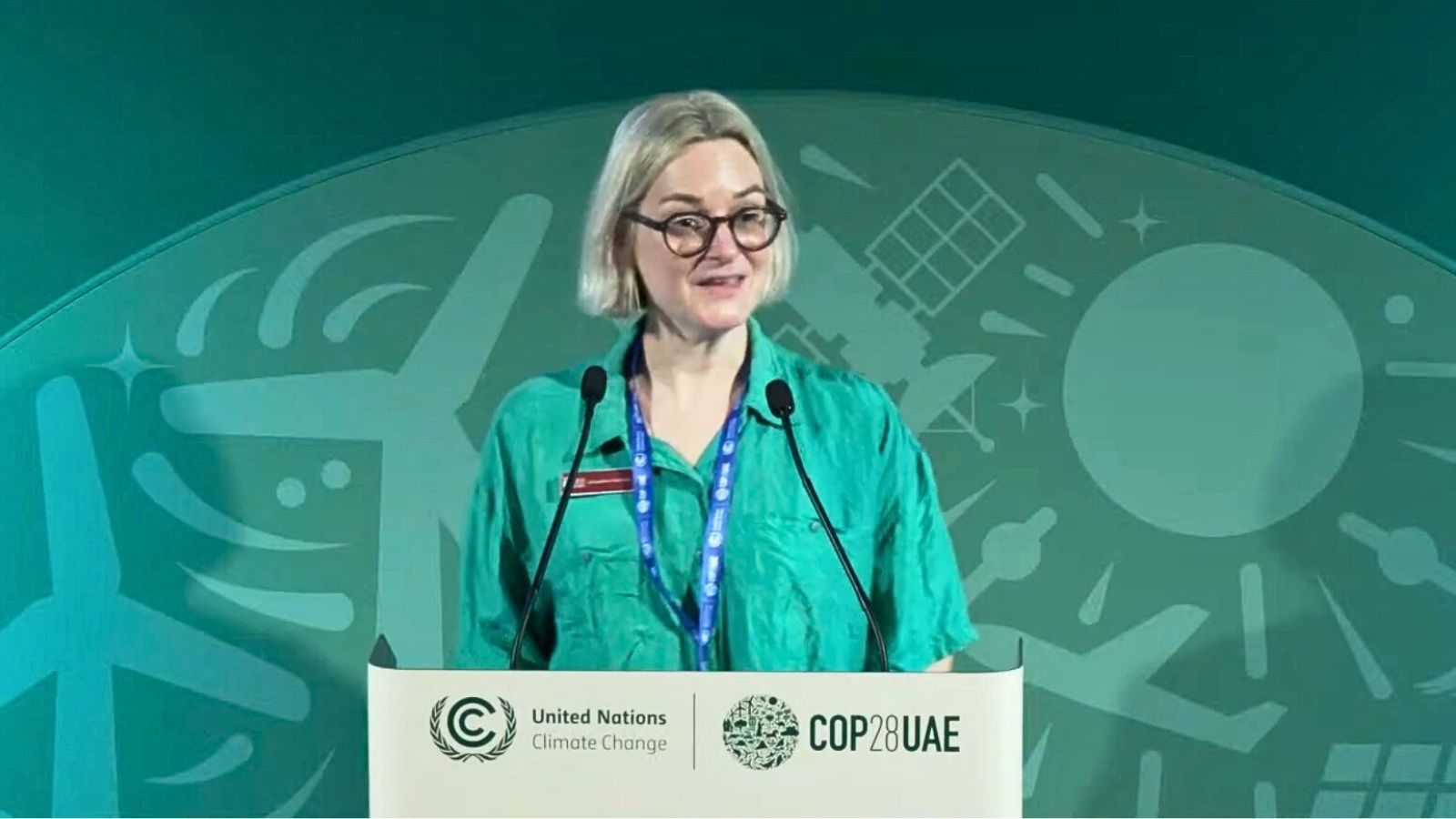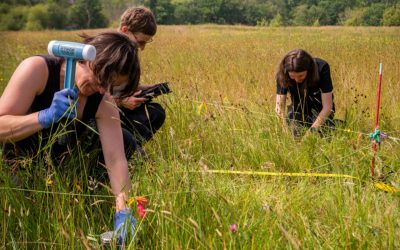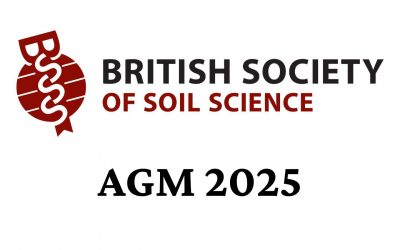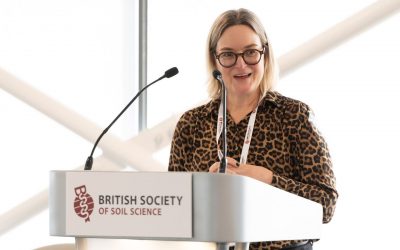It is the third year BSSS has attended the COP climate summit under our official non-governmental organisation (NGO) observer status. Bruce and I have now had the chance to reflect on the impact we had, and the space soils filled at COP28. In my last blog I highlighted how our attendance at COP28 marked a step change in our engagement with stakeholders at the event. This was achieved through dedicated hosting and participation at key events and discussions during the COP programme.
It was estimated that around 100,000 people attended COP28. A huge audience with a myriad of topics being discussed and debated. But our sense was soils had leapt up the agenda, being explicitly discussed as a critical part of solutions to climate change mitigation and adaptation, water, biodiversity, equity, and community. Our involvement, whilst individually small, is part of a large community dedicated to finding sustainable solutions.
We take heart in some of the big commitments made. The Loss and Damage Fund, agreements to triple renewable power generation capacity (and to double energy efficiency this decade), and oil and gas companies pledging to reach near zero-methane emissions by 2030. Leading food and agriculture organizations are joining forces to scale regenerative agriculture, partnering with around 3.6 million farmers to accelerate the transition of over 160 million hectares to protect the soil and limit carbon emissions. More than 130 countries signed the COP28 UAE Declaration on Sustainable Agriculture, Resilient Food Systems, and Climate Action. This is a declaration to include emissions from agriculture and farming into national plans to tackle climate change.
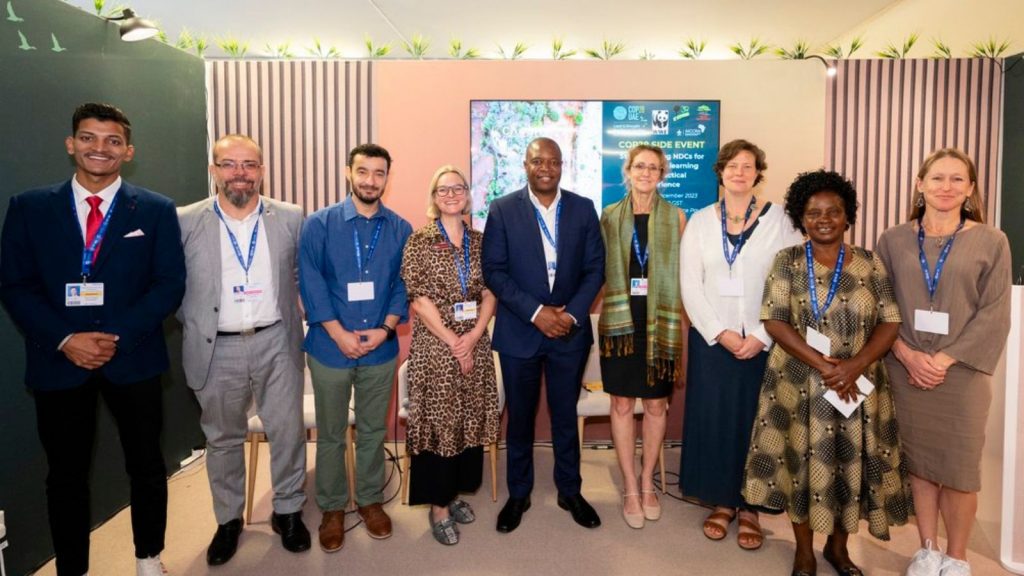
This last point is a major milestone. Someone commented to Bruce that it has taken 28 COPs to get agriculture and food properly included, but perhaps this is a good example of just how complex it is to scale solutions. We spoke to government officials from countries such as Rwanda, Kenya and India, and the reality is that the majority of farmers own less than an acre of land. That’s about the size of half a football pitch.
As we celebrate International Women’s Day, the announcement at COP28 of the gender-responsive just transitions – climate action partnership was well received. Globally, women have unequal access to land, finance and resources, resulting in unequal opportunity to build a resilient future. Bruce was at the launch and listened to Climate Justice Activist and advisor to the UN Secretary General, Ayisha Siddiqa, speak passionately about the issues. Ayisha told the audience, and the world, that “our responsibility is to life”. A really simple ask, but one that encompasses all we need to achieve.
We were delighted to host our own formal COP side event ‘Natural carbon sequestration: leveraging soils for mitigation, storage and biodiversity‘ with the Coalition of Action 4 Soil Health (CA4SH) and The Climate Center Center. The session explored the role of soils in achieving net zero, additional biodiversity co-benefits, and policy options to scale practices. We also highlighted our case studies, Invest in Soil, launched on World Soil Day, that share the best, most impactful demonstrations of the value of soil. I also took part in an event at the UNCCD pavilion with CA4SH ‘Strengthening NDCs for soil health – learning from practical experience‘. This session heard from a broad range of actors from farmers, youth and UN organisations on mechanisms to incentivize farmers to invest in soil health.
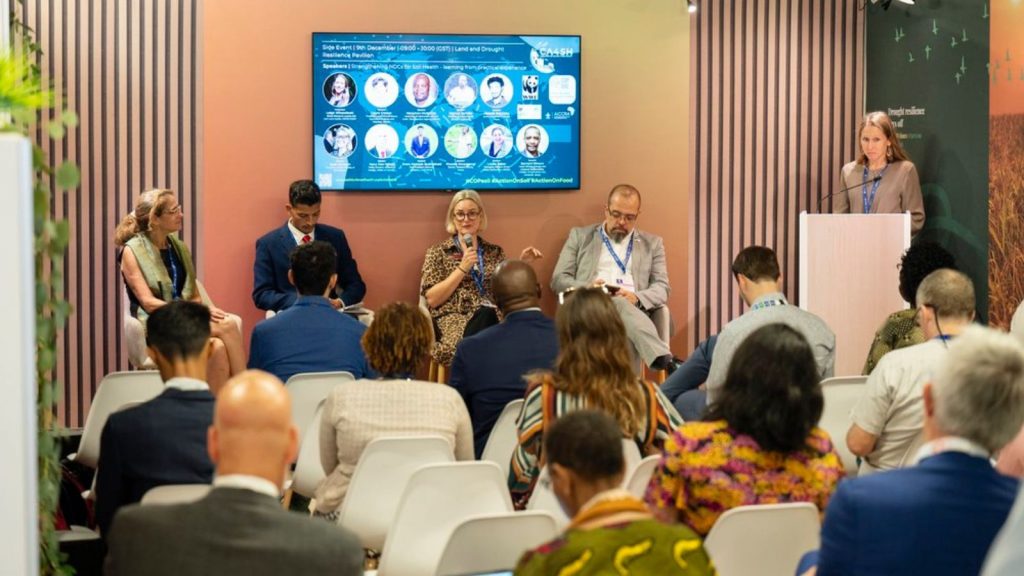
Whilst COP is a huge event, and draining to be at, we felt we had greater impact this year. We strengthened existing partnerships and developed new ones built from initial, often chance, conversations. BSSS are very conscious of the multiple challenges ahead: How to define the best interventions for soil that are underpinned by scientific evidence, how to translate this into policies which are simple, implementable and incentive-based, and how to ensure equitable and just financial mechanisms are available all. By being part of the COP melting pot, we can add our voice to these crucial international meetings to steer positive outcomes for soil and society.

